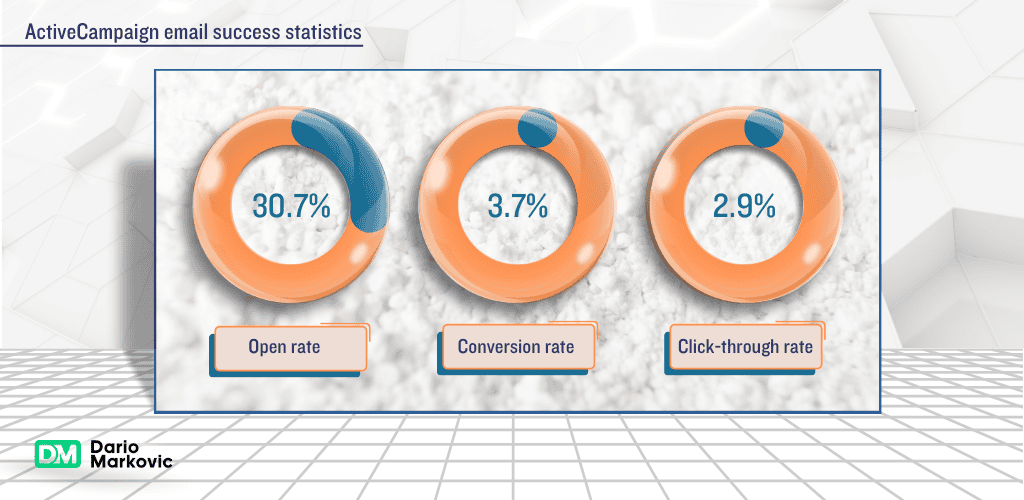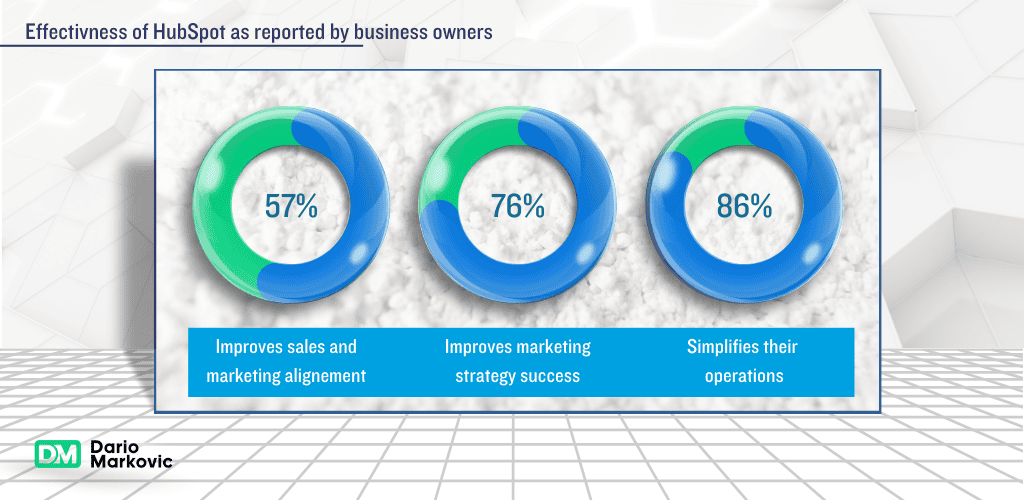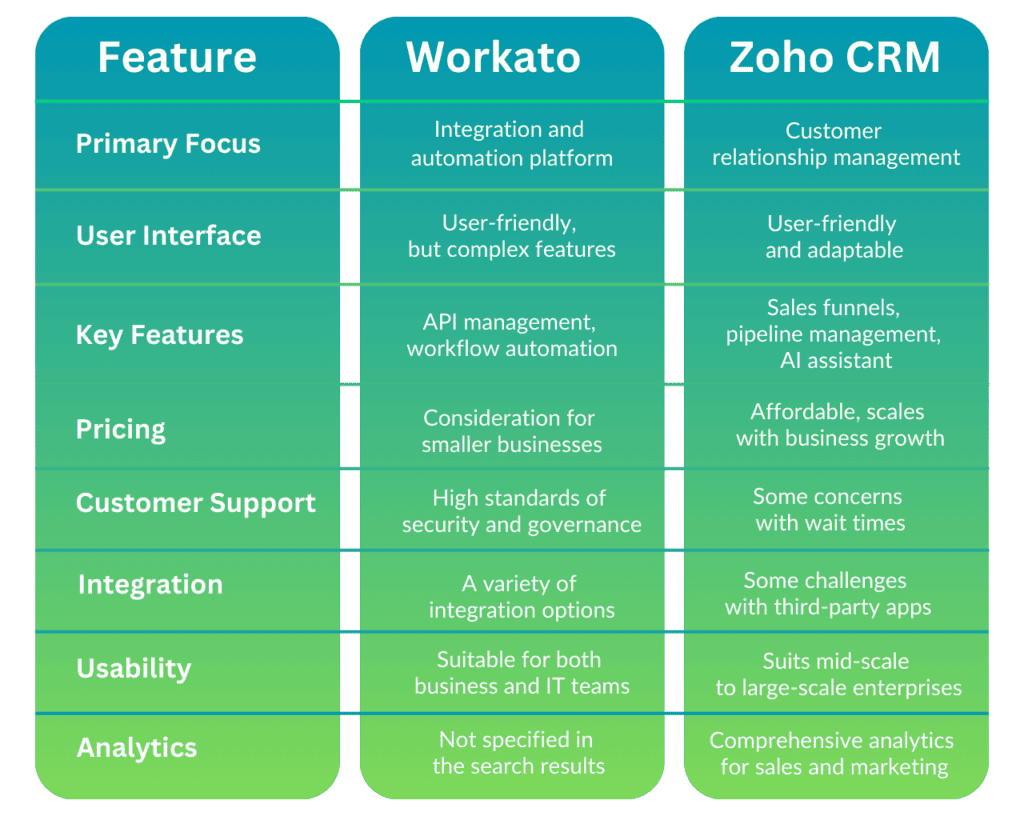When you’re hunting for the perfect customer service software, it’s like trying to find that one puzzle piece that fits just right. This article is your trusty compass for business automation tools in 2024, pointing you toward the solutions that resonate with your unique business heartbeat.
Forget the fluff—let’s dive into the real meat of what each contender brings to the table, weighing the good, the bad, and everything in between to help you make a decision that feels like a custom-made suit for your business.
Snapshot of Top Customer Service Software Solutions
If you are in a hurry and want to know what software is best for something, check them out below.
- Best for All-Round Performance: Zendesk
- Best for Ecommerce: Gorgias
- Best for Messaging and Automation: Intercom
- Best for Budget-Conscious Businesses: Freshdesk
- Best for Multichannel Support: LiveAgent
- Best for Email-Centric Support: Help Scout
- Best for IT Teams: Jira Service Management
- Best for Service Process Automation: Salesforce Service Cloud
- Best for Email and Communication Management: Front
The Big 4
Zendesk
LiveAgent
Freshdesk
Intercom
Overall
4.2
4.3
4.0
4.1
User Ratings
4.0 (28 votes)
4.0 (27 votes)
4.0 (3 votes)
3.0 (6 votes)
Best For
Drop shipping, print on demand, small stores, boutiques, brick and mortar.
Private label B2C businesses, larger inventories.
Content driven brands, small to medium stores.
Print on demand, small stores, boutiques, brick and mortar.
Pricing
$29 - $299
$29 - $299
Free (Hosting Not Included)
$23 - $49
Pricing Based On
Features, User Accounts, Transaction Fees
Features & Sales
Hosting, Features, Extensions
Support, Storage & Features
Payment Gateways
100+
55+
100+
35+
Additional Transaction Fees
0 - 2%
None
None
0 - 3%
Value
4.0
4.0
4.5
5
Features
3.8
3.9
3.9
3.7
Performance
3.9
4.5
3.1
3.9
Features
4.9
4.8
3.3
4.2
Design & Themes
4.0
3.8
4.3
4.7
Integrations
4.6
4.2
4.1
3.5
Discover Business Automation Tools That Transformed My Business
As an entrepreneur constantly seeking efficiency, I soon realized I need to find some business automation tools—software designed to take the grunt work out of my day-to-day operations, allowing me to focus on strategic growth.
I’ve personally tested and vetted each tool I’m mentioning here to ensure they can withstand the demands of a thriving business. These solutions have made a real difference for me. Read on to find out which business automation tools could be the key to streamlining your operations and achieving new levels of success.

Why Business Automation Tools?
Every entrepreneur seeks to maximize productivity while minimizing manual effort. Business automation tools offer just that—efficiency at your fingertips.
Top 15+ Business Automation Tools for 2024
TextExpander
TextExpander has been recognized as one of the smoothest text expansion business automation tools available. It is particularly beneficial for teams looking to improve their writing productivity and maintain communication consistency.
Pros:
- Streamlines repetitive typing tasks, saving time and reducing errors.
- Allows for sharing of ‘snippets’ across teams for consistent communication.
- Offers a low-code solution for creating complex documents with fill-in-the-blank and multiple-choice options.
Cons:
- Limited to text-based tasks may need to be increased for all automation needs.
- Subscription pricing may not be cost-effective for individual users.
Features:
- Custom keyboard shortcuts for expanding text make inserting frequently used content easier.
- Cross-platform functionality, supporting a wide range of devices and operating systems.
- Ability to correct spellings and manage recurring writing tasks efficiently.
ActiveCampaign distinguishes itself among other business automation tools with a robust set of features designed for digital marketing, offering scalability and support that aligns with various business sizes and needs.
Pros:
- Offers an all-in-one platform for creating and automating personalized customer experiences.
- Provides a variety of features to cater to different business needs.
- Recognized as one of the best email marketing platforms for automation in 2024.
Cons:
- The abundance of features may be overwhelming for new users.
- Pricing may be a consideration, as plans are differentiated by scale and functionality.
Features:
- Extensive email marketing capabilities with automation workflows.
- Customer relationship management (CRM) integrated with email functionalities.
- Detailed reporting and analytics to track campaign performance.
ClickUp stands out in the project management software space for its comprehensive toolset and flexible pricing plans, making it a strong contender for teams looking to enhance their productivity. ClickUp is for sure one of my favorite business automation tools, and one of the best project management software in general.
Pros:
- Known for its solid ‘Free Forever’ plan, offering a robust suite of tools without cost.
- Highly rated for helping teams plan and manage projects effectively.
- Versatile enough to be suitable for both small startups and large enterprises.
Cons:
- The extensive range of features might be complex for some users to navigate.
- Some users may need help finding the interface more intuitive than other project management tools.
Features:
- A wide array of project management functionalities, including task assignments, scheduling, and progress tracking.
- Customizable views and dashboards to suit different team preferences and workflows.
- Integrations with various other tools and platforms to streamline processes.
HubSpot is recognized for its robust feature set that supports various business activities, from lead management to marketing automation. It is a versatile choice for businesses using business automation tools to centralize their operations.
Pros:
- A leading cloud-based CRM platform suitable for companies of all sizes.
- Helps in tracking and nurturing leads effectively.
- Offers an all-in-one solution integrating sales, marketing, and customer service.
Cons:
- It may be more expensive than other CRM solutions, especially for small businesses.
- The wide array of features can be overwhelming for new users.
Features:
- Comprehensive CRM functionalities to manage customer relationships and sales pipelines.
- Tools for content marketing, SEO, and social media engagement to support inbound marketing strategies.
- Analytics and reporting features to measure business metrics and campaign effectiveness.
Zapier is celebrated for its ability to unlock the power of automation. It offers a user-friendly platform that can significantly streamline business processes.
Pros:
- Known for handling large volumes of data and automating workflows efficiently.
- Suitable for businesses of all sizes, from small startups to large enterprises.
- It offers a new visual editor, free filter, and formatting tasks for enhanced control.
Cons:
- Some users may find the task-based pricing model costly as automation needs scale.
- The platform’s wide range of functionalities might be complex for beginners.
Features:
- Enables the creation of automated workflows, known as “Zaps,” which connect different apps and services.
- Task-based pricing starts at $29.99 per month for 750 tasks.
- No credit card is required to sign up and start creating workflows.
Make is a powerful automation tool with advanced functionality, including webhooks support and data manipulation, which is ideal for creating complex workflows. While it offers robust debugging and testing tools that surpass many competitors, users may face a steeper learning curve and need some coding knowledge to leverage its capabilities thoroughly.
Pros:
- Advanced functionality
- Support for webhooks
- Data manipulation capabilities
- Visual routing for complex workflows
Cons:
- Steeper learning curve
- It may require coding knowledge for certain tasks
Features:
- Robust debugging and testing tools
- Superior overall features compared to counterparts like Zapier, Automate.io, Zoho Flow
IFTTT
IFTTT is appreciated for its straightforward approach to automation. It makes automation accessible to those who may not be tech-savvy while offering powerful integration capabilities—one of the most accessible business automation tools.
Pros:
- It is ideal for integrating various web services to create automated actions.
- User-friendly interface that simplifies the creation of “Applets” for automation.
- Offers a range of functionalities that cater to both personal and business use.
Cons:
- Some users may need help finding the automation capabilities compared to other platforms.
- There might be security concerns for sensitive data when connecting different services.
Features:
- Allows users to create conditional statements, known as “Applets,” which trigger actions across different web services.
- Reviews suggest it’s a strong contender in the workflow automation space, with a focus on simplicity and ease of use.
Automation is not about replacing people.
It's about replacing tasks.Stewart Butterfield
Okta is recognized for improving network security and offering a detailed set of features for identity management, making it a solid choice for businesses looking to enhance their IT infrastructure.
Pros:
- Enhances network security and reduces low-level IT service requests.
- Provides an automated identity management solution that’s robust and reliable.
- Positive feedback from users on its features and support.
Cons:
- Some businesses may find the pricing model to be on the higher side.
- The implementation process can be complex, requiring a thorough system understanding.
Features:
- Offers a comprehensive set of identity management tools to secure user access across various applications.
- Reported revenue growth and strong financial performance, indicating a stable and growing user base.
Pros:
- Offers advanced spelling and grammar-checking capabilities.
- Features a best-in-class AI writing assistant to aid content generation.
- User-friendly interface that integrates well with various platforms.
Cons:
- The premium version may be costly for some users.
- It may only catch some things that could be improved, particularly in complex writing scenarios.
Features:
- Provides real-time writing suggestions and corrections.
- It helps improve writing skills with detailed explanations for errors.
- Supports multiple English dialects and writing styles.
Gemini
Google Gemini is recognized for its enhanced language model that delivers engaging and informative interactions, positioning it as a strong competitor in the AI conversation.
Pros:
- Advanced comprehension of various questions, providing accurate and insightful responses.
- Integration with Gmail for efficient email management.
- It offers a more intelligent way to engage in conversations and generate creative content.
Cons:
- As with any AI tool, there may be limitations in understanding context or nuance in certain scenarios.
- The full range of features and their effectiveness can vary depending on the user’s needs and expectations.
Features:
- Designed to tackle open-ended, challenging, or peculiar queries with informative answers.
- It aims to provide a seamless conversational experience with generative AI capabilities.
SureTriggers is noted for its robust automation capabilities, making it a valuable tool for enhancing productivity and operational efficiency.
Pros:
- Offers a wide range of features and functionalities for businesses of all sizes.
- Enables data-driven decisions and streamlined operations.
- User-friendly interface that requires no coding knowledge for task automation.
Cons:
- The effectiveness can vary depending on the user’s specific needs and technical expertise.
- Some users may require additional support to leverage all available features fully.
Features:
- Connects different apps and services to create workflows based on user behavior or criteria.
- Extensive integration options, especially for WordPress users.
- Flexible pricing structure to accommodate various business requirements.
Pros:
- Known for simplifying email marketing with user-friendly tools.
- Offers a comprehensive set of features for effective email campaigns.
- Suitable for businesses of all sizes, with a reputation for being affordable.
Cons:
- Some users may find the platform’s capabilities limited compared to other competitors.
- The transition from its former identity (Sendinblue) may require an adjustment period for existing users.
Features:
- Provides email templates, automation systems, and a CRM stack.
- Trusted by over 500,000 businesses worldwide for marketing and customer relationship management.
Pros:
- Recognized as a leader in integration and automation platforms.
- Enables both business and IT teams to integrate apps and automate workflows.
- Maintains high standards of security and governance.
Cons:
- The complexity of features may require a learning curve for new users.
- Pricing may be a consideration for smaller businesses or startups.
Features:
- Offers API management and a variety of integration options.
- Provides a user-friendly interface with verified user reviews.
Hootsuite is celebrated for its robust social media management solutions, which help users improve their results and get more from social media.
Pros:
- Widely trusted for managing social media accounts across various platforms.
- Offers expert certifications, training, and coaching in social marketing and customer care.
- Provides comprehensive analytics features for post-performance insights.
Cons:
- Some users may find the interface less intuitive compared to other tools.
- The pricing structure might be a concern for individual users or small businesses.
Features:
- Strong publishing and scheduling capabilities.
- Customizable reports and social listening tools.
Zoho CRM
Pros:
- Scales well with small business growth.
- User-friendly interface and adaptable to various business sizes.
- It offers comprehensive features, including sales funnels, pipeline management, and workflow automation.
Cons:
- Customer service wait times can be frustrating.
- Some users find integrating with third-party apps challenging.
- It may offer less advanced features compared to some competitors.
Features:
- Cloud-based 360° customer relationship management.
- AI-powered conversational assistant and task management.
- Capabilities for managing marketing campaigns and sales activities.
Both Workato and Zoho CRM offer robust solutions tailored to different business needs. Workato excels in integrating apps and automating workflows, making it ideal for businesses looking to connect various systems. Zoho CRM manages customer relationships with robust features for sales and marketing teams.
Automation is to your time what
compound interest is to your money.Rory Vaden
Also, Check Out These Business Automation Tools
- Loomly: A social media management tool that helps with content creation, team collaboration, and publishing automation.
- Simplified: Offers a suite of tools designed for content creation, automation, and optimization, particularly in brand marketing.
- Flows (Power Automate): Part of Microsoft’s Power Automate platform, users can create automated workflows between apps and services to synchronize files, get notifications, collect data, and more.
- SendInBlue: An all-in-one marketing platform that provides services for email marketing campaigns, SMS messages, and marketing automation.
Which Tools Will You Choose For Your Business?
In 2025, best business automation tools will be not just a luxury but a necessity. They will empower entrepreneurs to focus on growth while efficiently managing the mundane.
Selecting the right business automation and CRM tool is critical to operational success. Businesses must assess their unique requirements to choose the platform that best aligns with their strategic objectives, ensuring a competitive edge in today’s market.




















